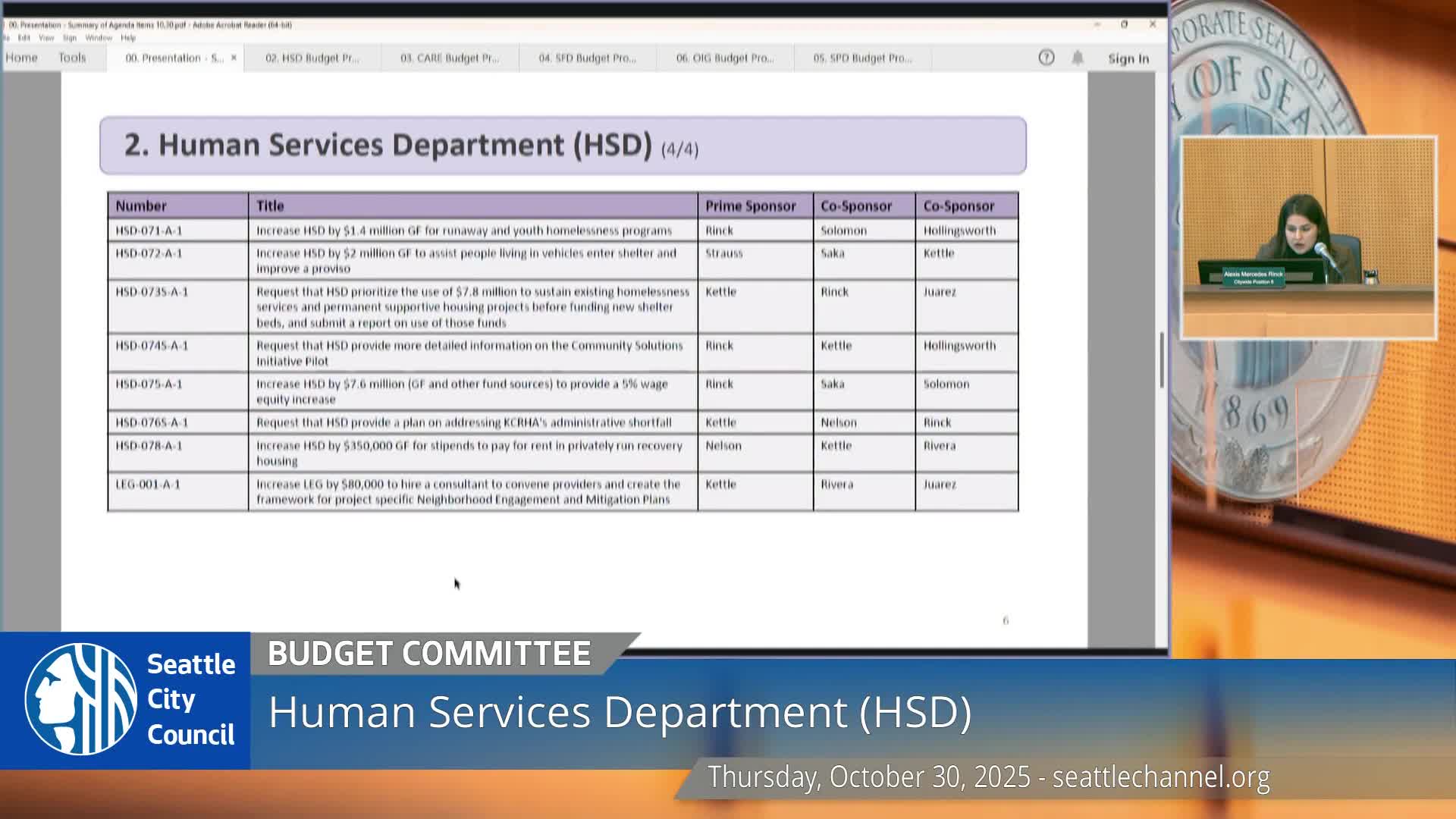Council seeks transparency, staffing and tools as Care prepares for expanded sole dispatch
Get AI-powered insights, summaries, and transcripts
Subscribe
Summary
The committee considered several Care (Community Assisted Response & Engagement) amendments to expand data systems, preserve dedicated 911 nonemergency call-takers, transfer contract administration into Care, and request reports on training and public dashboards for the community crisis responder teams.
Seattle — Councilmembers pressed for clearer performance data, staffing protections and training details for the city—s alternative crisis-response system during the Oct. 30 Select Budget Committee meeting.
The committee heard five Care-focused items: a software and subscription request to improve data visibility (Care 1, $200,000), a proviso to protect funding for four dedicated nonemergency 9-1-1 call-takers (Care 2, $579,000), a proposal to transfer administration for certain contracts from HSD to Care (Care 3), and two requests for reporting: one on training protocols for Community Crisis Responder (CCR) teams (Care 4) and another for a publicly accessible dashboard with CCR outcomes and integration details (Care 5).
Councilmember Rivera, sponsor of the 9-1-1 call-taker proviso, said the four positions had been placed last year to reduce long nonemergency wait times and had been used to backstop emergency-call staffing; the proviso would prioritize restoring dedicated nonemergency capacity while recognizing emergency demands. Tommaso Johnson (Council Central staff) said Care leaders view an integrated software subscription as a high priority that did not make the mayor—s initial proposal.
Why it matters: Council members emphasized that sole dispatch for Care responders is imminent and that decisions about staffing, data and training will affect response reliability and public confidence. Rivera and others requested a public tally of calls, response outcomes and how CCR activities integrate with SFD, SPD and HSD referrals.
What the amendments request: Staff reporting on training curricula and evidence-based de-escalation tactics, a public dashboard of CCR outcomes, protected funding for nonemergency call response positions, and either departmental transfers or clarified contract administration to ensure operational accountability.
Ending note: No votes were held in the morning session. Sponsors said they expect Care to return data and training materials in time to inform the chair—s package and subsequent budget decisions.
